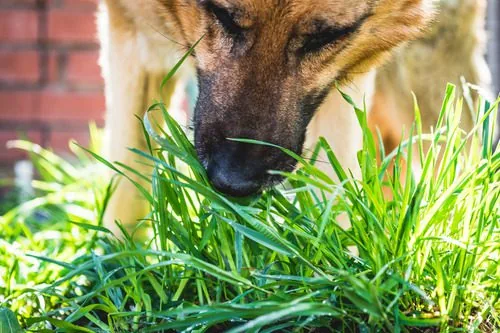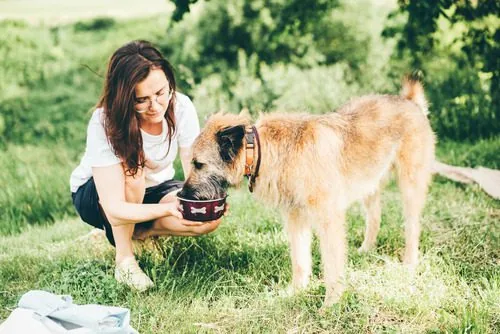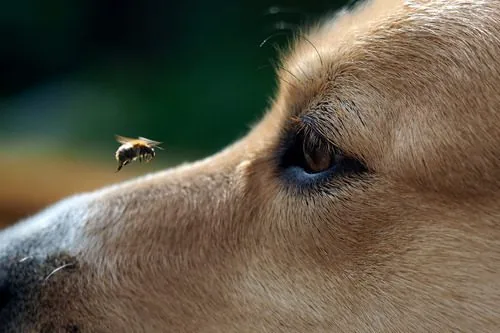Can Dogs Eat Marshmallows?
Marshmallows are a popular treat for many people, but pet owners often wonder, “Can dogs eat marshmallows?” While it may be tempting to share these sweet treats with your furry friend, it’s important to understand the potential risks and benefits involved. This blog will explore whether dogs can eat marshmallows, the ingredients that may be harmful, and healthier alternatives to consider. For any concerns about your pet’s diet, please call Boughton Square Animal Clinic at (630) 759-0093 or make an appointment.

What Are Marshmallows Made Of?
Marshmallows are primarily made from sugar, water, and gelatin. These ingredients give marshmallows their characteristic fluffy texture. Some marshmallows may also contain corn syrup, vanilla extract, and food coloring. While these ingredients are generally safe for human consumption, they can pose risks for dogs.
Sugar and Corn Syrup
Sugar and corn syrup are the main ingredients in marshmallows. Consuming too much sugar can lead to obesity, diabetes, and dental problems in dogs. High sugar intake can also cause an upset stomach, leading to vomiting or diarrhea. Dogs’ digestive systems are not designed to handle large amounts of sugar, making marshmallows an unhealthy choice for them.
Gelatin
Gelatin is a protein derived from animal collagen and is generally safe for dogs in small amounts. However, it does not provide any significant nutritional benefits. While gelatin itself is not harmful, the high sugar content in marshmallows outweighs any potential benefits.
Artificial Additives
Some marshmallows contain artificial additives like food coloring and flavorings. These additives can cause allergic reactions or gastrointestinal issues in some dogs. It’s best to avoid giving your dog any food with artificial additives, as their long-term effects are not well understood.
Are Marshmallows Toxic to Dogs?
While marshmallows are not inherently toxic to dogs, they can still pose several health risks. The high sugar content and potential presence of artificial additives make them a poor choice for a dog’s diet. Moreover, some marshmallows contain xylitol, an artificial sweetener that is highly toxic to dogs.
Xylitol: A Dangerous Sweetener
Xylitol is a common sugar substitute found in many sugar-free products, including some marshmallows. Even a small amount of xylitol can cause a rapid insulin release in dogs, leading to hypoglycemia (low blood sugar). Symptoms of xylitol poisoning include vomiting, loss of coordination, seizures, and in severe cases, liver failure. If you suspect your dog has ingested xylitol, contact your veterinarian immediately.
Choking Hazard
Marshmallows are soft and squishy, which can make them a choking hazard, especially for small dogs. Dogs tend to swallow food without chewing it thoroughly, increasing the risk of choking. Always supervise your dog when giving them any treat to prevent accidents.
Healthier Alternatives to Marshmallows
If you’re looking for a treat to give your dog, there are many healthier alternatives to marshmallows. These options are not only safer but also provide nutritional benefits for your pet.
Fruits and Vegetables
Many fruits and vegetables make excellent treats for dogs. Some safe options include:
- Apple slices (without seeds): Apples are a good source of vitamins A and C, as well as fiber. Just be sure to remove the seeds and core, as they can be harmful.
- Carrot sticks: Carrots are low in calories and high in fiber and vitamins. They also promote good dental health by helping to clean your dog’s teeth.
- Blueberries: These small berries are packed with antioxidants and are a great low-calorie treat.
Commercial Dog Treats
There are many commercially available dog treats that are specifically formulated to be healthy and safe for dogs. Look for treats that are low in sugar and free from artificial additives. Always read the ingredient list to ensure the treat is suitable for your dog’s dietary needs.
Homemade Dog Treats
Making homemade dog treats allows you to control the ingredients and ensure they are safe and healthy. There are many simple recipes available online that use dog-friendly ingredients like pumpkin, peanut butter (without xylitol), and oats. Homemade treats can be a fun and rewarding way to bond with your pet while ensuring they receive nutritious snacks.
What to Do if Your Dog Eats Marshmallows
If your dog accidentally eats a marshmallow or two, there is no need to panic. Monitor your dog for any signs of gastrointestinal distress, such as vomiting or diarrhea. In most cases, a small amount of marshmallow is unlikely to cause serious harm.
When to Contact Your Veterinarian
If your dog has eaten a large quantity of marshmallows or marshmallows containing xylitol, contact your veterinarian immediately. Symptoms of xylitol poisoning can appear quickly, and prompt veterinary care is crucial. Even if your dog shows no immediate signs of distress, it’s always better to err on the side of caution and seek professional advice.
Preventing Accidental Ingestion
To prevent your dog from accidentally eating marshmallows or other harmful foods, store all treats and human foods out of their reach. Educate family members and guests about the dangers of feeding dogs human treats, and always supervise your dog during social gatherings where food is present.
Ensuring Your Dog’s Health with Safe Treat Choices
While the answer to “Can dogs eat marshmallows?” is technically yes, it is not recommended due to the potential health risks. Marshmallows contain high levels of sugar, artificial additives, and, in some cases, xylitol, which can be harmful to dogs. Instead of giving your dog marshmallows, consider healthier alternatives like fruits, vegetables, and specially formulated dog treats. For any concerns about your dog’s diet or to learn more about safe treat options, please call Boughton Square Animal Clinic at (630) 759-0093 or make an appointment. Your veterinarian can provide personalized advice based on your dog’s specific needs and health conditions.
Recent Posts
6 Possible Causes for Your Cat’s Sneezing
6 Possible Causes for Your Cat’s Sneezing Cats are known for their curious and playful nature, but…
Why is My Dog Eating Grass?
Why is My Dog Eating Grass? Dogs are known for their curious behaviors, and one that often…
Can Dogs Get Sunburn?
Can Dogs Get Sunburn? As summer approaches and the days get longer, many pet owners look forward…
Dog Dehydration: Symptoms, Treatment and Prevention
Dog Dehydration: Symptoms, Treatment and Prevention Dehydration in dogs is a common but often overlooked condition that…
What To Do If Your Dog is Stung by a Bee
What To Do If Your Dog is Stung by a Bee As warmer weather arrives and outdoor…
About Boughton Square Animal Clinic
Since 1979, Boughton Square Animal Clinic has served Bolingbrook, IL and surrounding communities as both a veterinary care provider and a devoted partner in treating your animal family members for life.






